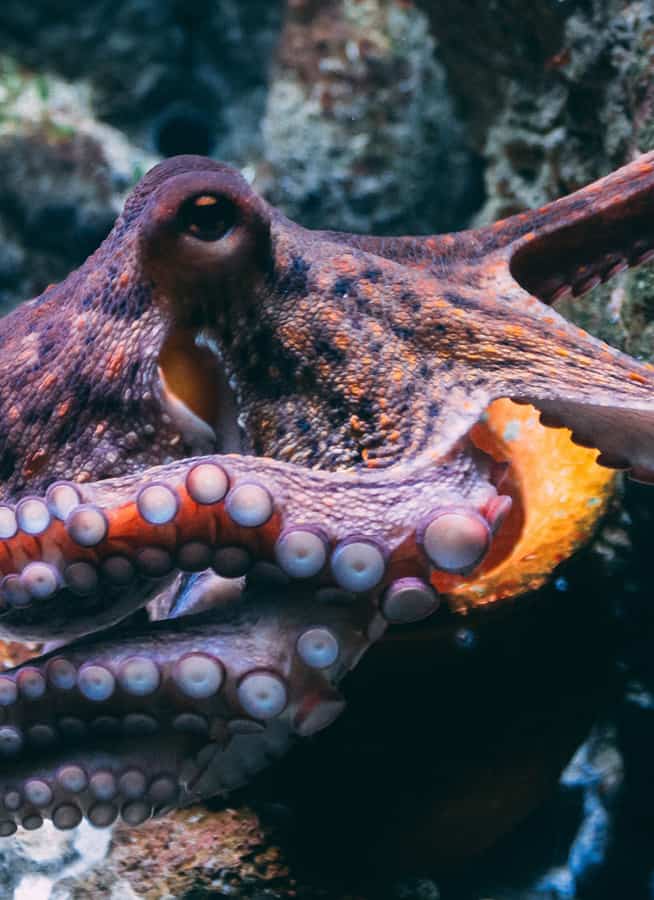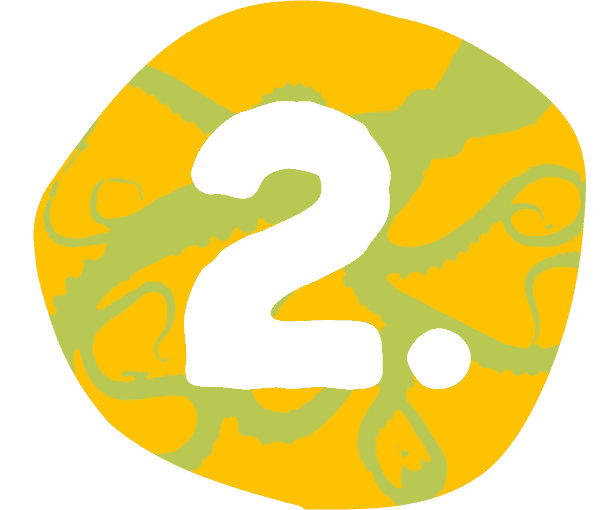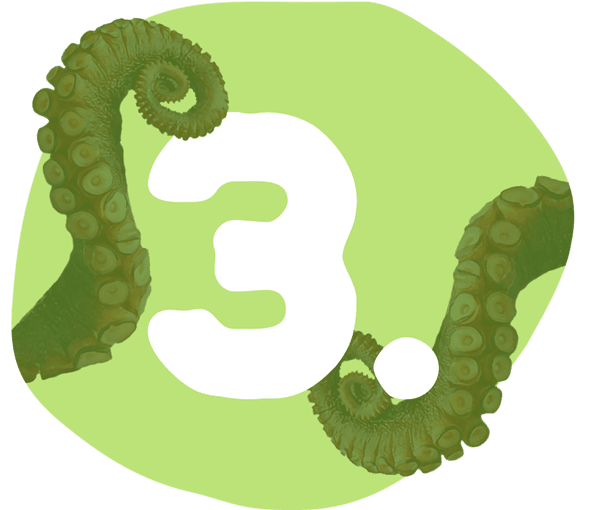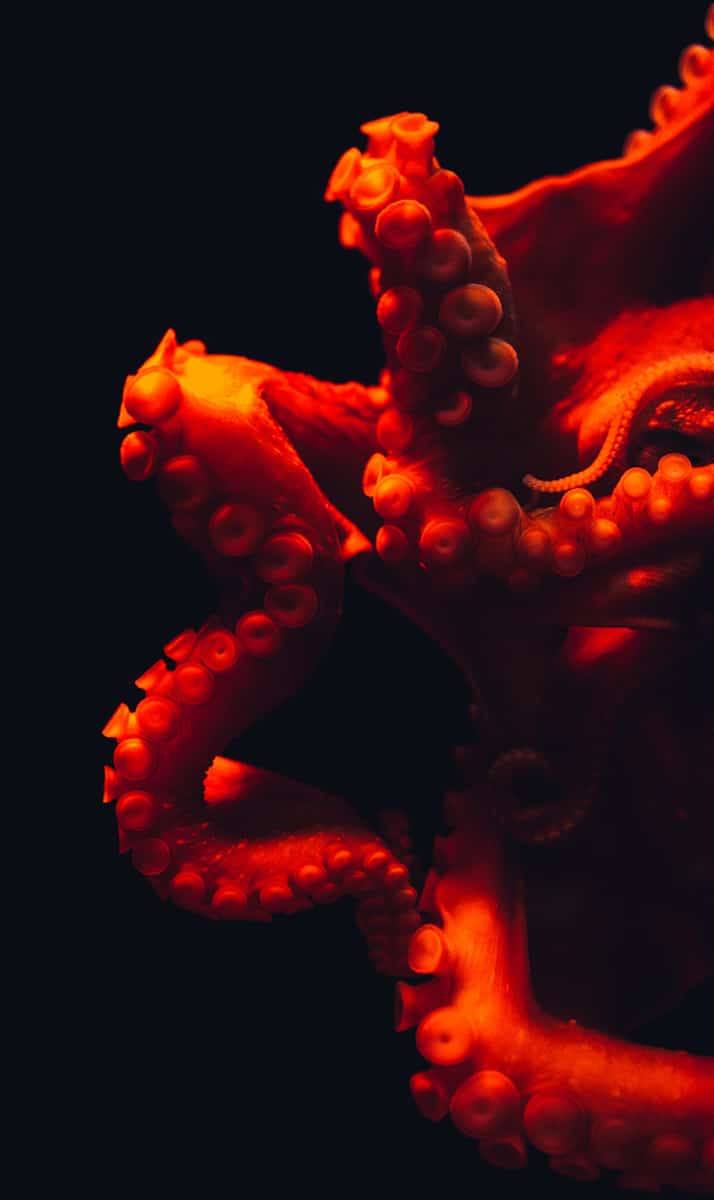Take Action to Stop Octopus Farming
An increased demand for octopus flesh has ignited a devastating Europe-wide race to build the first octopus farm. The Spanish multinational, Nueva Pescanova, recently announced that it will start marketing farmed octopus in the summer of 2022 with a view to start selling from their newly built facility in Gran Canaria by 2023.
Global demand for octopus has been rising for decades¹. Coupled with increasing prices due to the depletion of octopus communities at sea² ³, animal agriculture industries have been keen to expand markets by farming these eight-armed geniuses on land. However, the natural lifecycle of an octopus has been difficult to replicate in the confines of a laboratory or farm; secret experiments on octopuses and attempts to farm them have resulted in aggression, self-harm and cannibalism¹³. Octopuses are highly intelligent, sentient animals who deserve more than a life inside a barren tank. Read more about these amazing creatures here.
Plant Based Treaty endorser Becca Franks, PhD, Research Scientist from the Department of Environmental Studies at New York University says, “Octopus farming is a reckless and backward idea that should never become a reality.”

Ecological and welfare disaster
Nueva Pescanova has so far refused to provide Plant Based Treaty campaigners with details about the conditions the octopuses will be kept in, what they will eat or how they will be killed.
Octopus farming contravenes the EU Strategic Aquaculture Guidelines (SAG) because it will further deplete populations of fish communities living in the oceans. For every 3kg octopus killed for people to eat, at least 9kg of fish will have been torn from the oceans to sustain them¹¹.
Just like other forms of carnivorous aquaculture including salmon and trout, this is an ecological disaster which will further deplete species of fish and marine ecosystems already in decline. Around a third of fish caught in the oceans is turned into animal feed, roughly half of which goes to fish farms. This is only set to increase with the introduction and expansion of octopus farms¹².
Our Demands

End cruel experiments
The closure of the Nueva Pescanova octopus research centers and farms in Spain and Gran Canaria

Worldwide recognition
A worldwide recognition and declaration of octopus sentience as has been done in the United Kingdom
Become an Octopus Defender
Sign the Petition
![]()
Send a letter
![]()
Download FREE Vegan Starter Kit
![]()
Sign the Plant Based Treaty
![]()
Make a donation
![]()
Read about Octopus farming
![]()
8 Fascinating Facts about Octopuses
1. As the world’s most intelligent invertebrate with a large doughnut-shaped brain, octopuses also have eight mini brains in each of their arms and as many neurons as a dog.
2. Octopus are sensitive souls who experience both physical and emotional pain. They take measures to avoid painful situations and have been seen soothing and grooming their skin after having injections during laboratory experiments.
3. They have three hearts. Two hearts pump their blue blood through their gills to collect oxygen and their central heart circulates the oxygenated blood to the rest of their body.
4. Speedy octopuses can travel at speeds of 27 mph.
5. Octopuses’ boneless bodies can change shape to squeeze through the smallest of gaps and even open jars from the inside.
6. Known to be the only invertebrate who uses tools, octopuses build dens out of discarded coconut shells, and have been seen defending themselves with rocks.
7. Females have been observed throwing silt and objects at males that are harassing them.
8. Humans and octopuses had a common ancestor 560 million years ago, and according to evolutionary biologist Dr Jakob Vinther their ‘problem-solving abilities, playfulness and curiosity are very similar to those of humans.’


